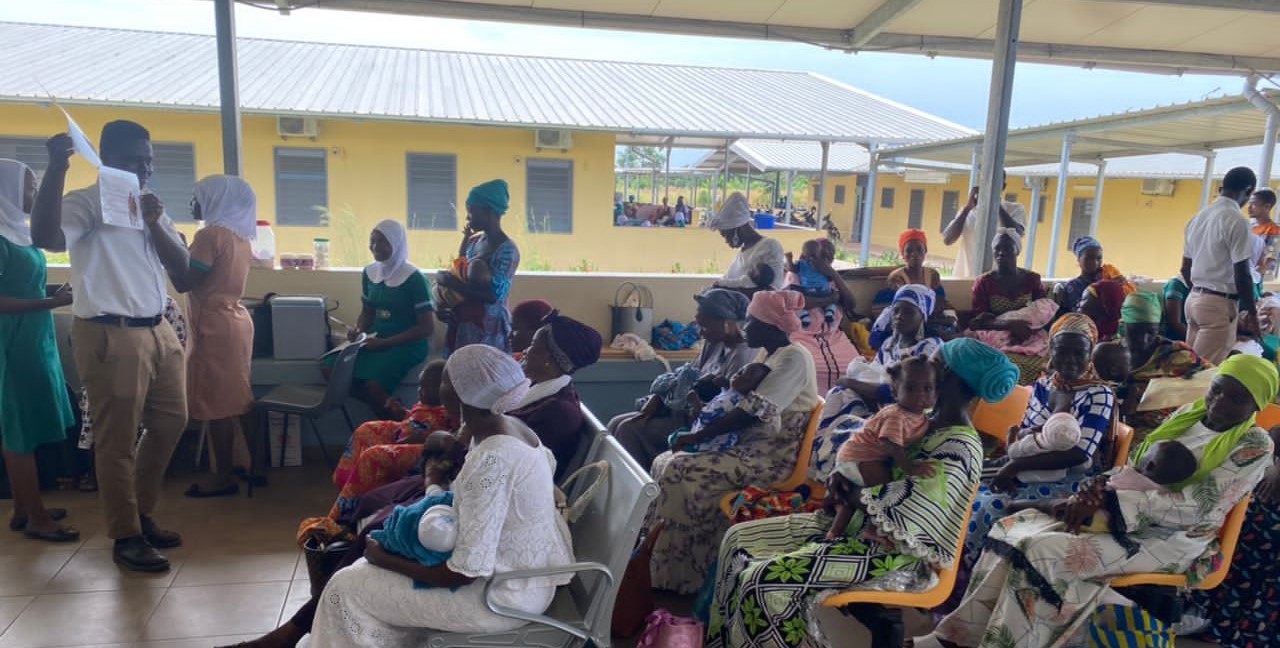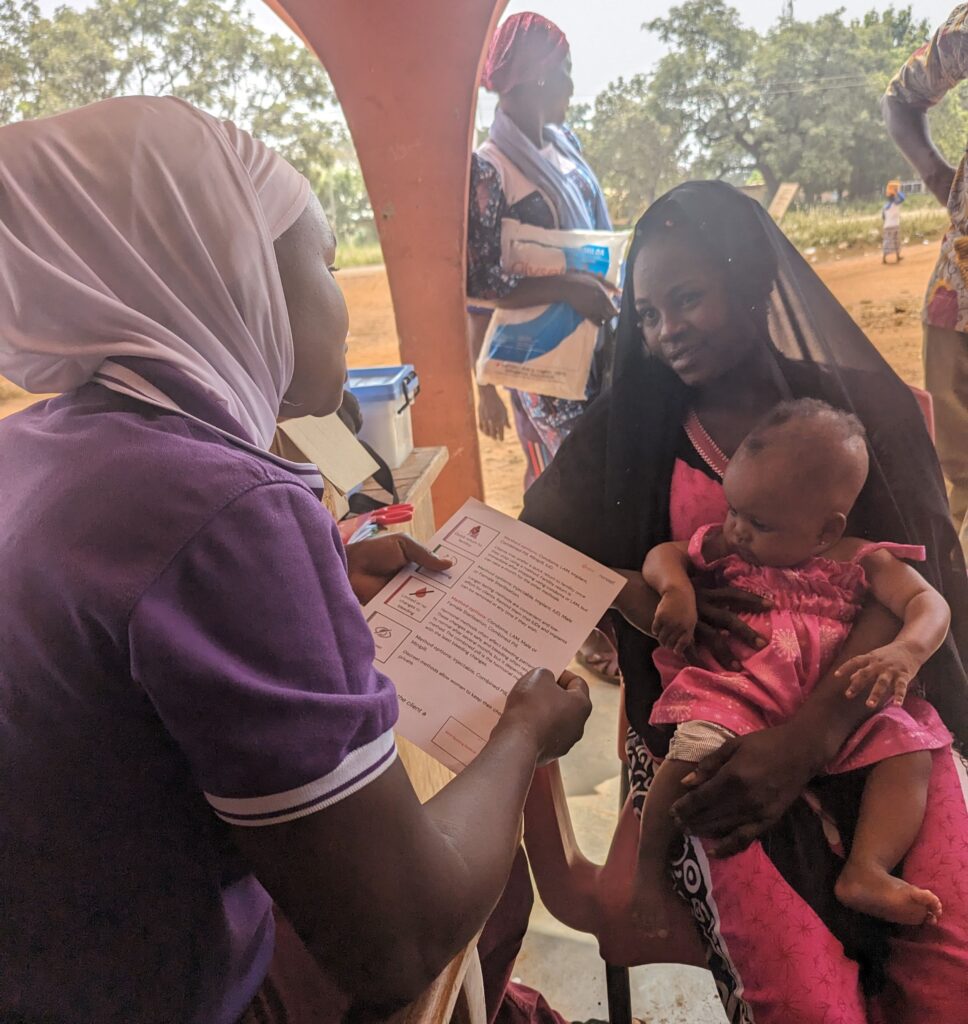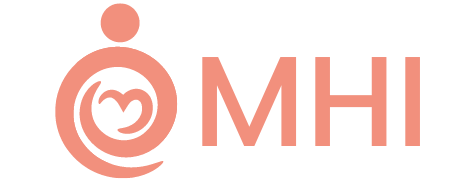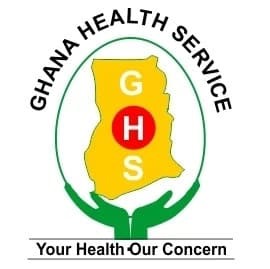maternal health initiative
Producing transformative benefits to women’s health, agency, and income through increased access to family planning.
MHI trained healthcare workers in a system of counselling that maximises the quality of information and access to family planning women receive in the post-birth period.
We have also published recommendations for funders and implementers of postpartum family planning work.
120+
Midwives and Community Health Nurses trained
18
Ghana Health Service facilities implemented MHI’s counselling
40,000+
Estimated number of clients reached by MHI-trained providers

Increasing women’s ability to access to contraceptives in the post-birth period can produce transformative improvements to their lives and those of their families.
why this matters
34% of women in Ghana have an unmet need for family planning. MHI’s training and counselling approach for healthcare workers aimed to change this.
200,000 women die of pregnancy-related complications in sub-Saharan Africa every year. Increased access to family planning could prevent 32% of these deaths.
Short-spaced pregnancies result in an 44% increase in infant mortality across sub-Saharan Africa. MHI worked specifically at the post-birth period to address this.
What we do
MHI conducted pilot work in the Northern Region of Ghana to train healthcare workers in effective postpartum family planning counselling. We worked in partnership with two local organisations and the Ghana Health Service.
Our training provided public healthcare workers with an approach and tools for counselling designed through an exhaustive process of research and consultation with international experts in family planning provision and capacity building.
By building the knowledge and skills of public healthcare workers, our work aimed to produce meaningful shifts in contraceptive uptake through a sustainable, integrated approach.
In January 2024, we completed our six-month pilot study in partnership with Norsaac and the Ghana Health Service. You can read more about the results here, or download the full report.

OUR PARTNERS
Our work depended on the skill, dedication, and knowledge of our local partner organisations. Savana Signatures and Norsaac each have an extensive record delivering high-quality reproductive health programming and play an invaluable role in designing, implementing, and evaluating our programming.
Savana Signatures
Savana Signatures is a Ghanaian For-Impact NGO and leader in the innovative use of ICT to design and deliver inclusive, scalable Social and Behavior Change and Community Development interventions with a mission to initiate positive change among girls, women, youth and vulnerable population of Ghana using innovative solutions to facilitate their reproductive health and rights, quality education and skills development.
Savana Signatures holds extensive experience infusing innovative approaches into nutrition, MCH, sexual health and rights, education, and skills development initiatives with Ghanaian youth, women, and vulnerable populations.
Norsaac
Norsaac is a human-rights, community engagement, and policy influencing organization serving Ghana to promote social transformation and improved living conditions.
Situated in the Northern region’s capital Tamale, Norsaac has over 20 years’ experience in engaging communities and community groups, traditional and religious leaders, stakeholders from district level through to the national level and has partnered with 35 organizations both local and international.
For the sustainability of its interventions, Norsaac works closely with government agencies, departments and institutions and has been nationally recognized by key actors and development partners.
99%
of maternal deaths occur in lower-income countries
893,000
child deaths could be prevented by increased birth spacing
19%
of pregnancies in sub-Saharan Africa are short-spaced




